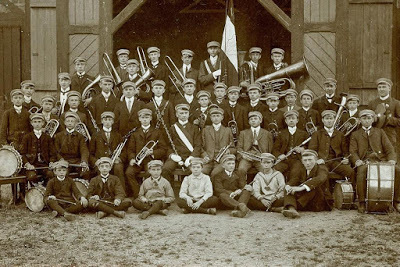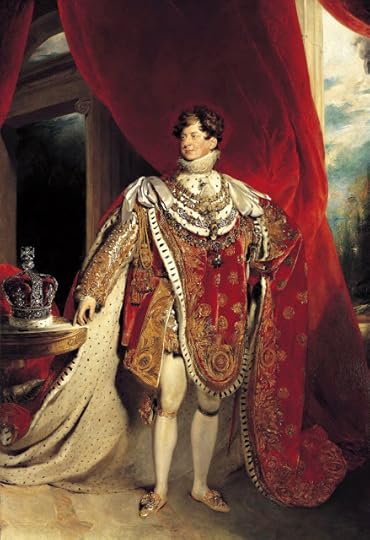Christina Croft's Blog
June 15, 2021
Murderesses in Victorian Britain Audiobook
Which Victorian murderess inspired Thomas Hardy’s "Tess of the D’Urbevilles"? Who lived to regret her "deathbed" confession? Was Amelia Dyer mad or wicked? Why did the judiciary look compassionately on women who committed infanticide? Among over 80 women whose stories appear in this book, some were tragic; some were evil; some were mad; and several were undoubtedly innocent of the murders for which they were hanged. While politicians argued about the rights and wrongs of capital punishment, some of these women walked stoically to the gallows; some fainted or screamed in terror at the sight of the noose; and others walked free from the courtroom having ‘got away with murder.
Fabulously narrated by Tim Feardon, my book "Murderesses in Victorian Britain" is now available as an audiobook on iTunes, Amazon and Audible. To hear a sample, please click the picture below:

August 24, 2020
Shattered Crowns - The Scapegoats
“In the past,” Archduke Franz Ferdinand said, “I believed that kings and emperors made all the decisions for their people. Now, though, I see it very differently. For the most part, monarchs are merely the actors who take centre-stage. Their lines are scripted for them and their movements are stage-managed by faceless people whom the audience never sees. Even in an autocracy like Austria-Hungary, so much goes on behind the scenes where ministers and politicians plot and intrigue among themselves. They see their monarchs as little more than puppets. They make plans that suit their personal ambitions and increase their own sense of power, and they manipulate their emperors into accepting and implementing those plans at whatever cost to their countries. Then comes the cruellest part of all: when the drama turns into tragedy, these people withdraw into the shadows leaving the emperor to shoulder all the blame…””
From 'The Scapegoats' - the first book in the Shattered Crowns trilogy - a series of novels portraying the Royal Families of Germany, Russia, Austria-Hungary and Roumania in the First World War.
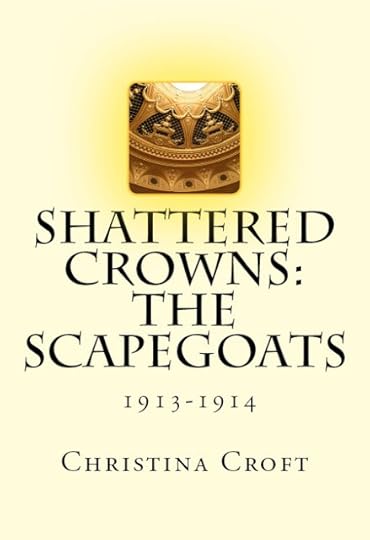
August 21, 2020
Crown Prince Rudolf
The ill-fated Crown Prince Rudolf was born on 21st August 1858. Countess Larisch, writing after his death, rather dramatically described her first meeting with him. It sounds very melodramatic and obviously written in hindsight...."The next evening we were invited to a family dinner, and there I saw, for the first time since I was quite a tiny child, my cousin the Crown Prince Rudolph. When he entered the room I experienced a curious feeling of uneasiness. Perhaps my subconscious self knew the danger which Rudolph was destined to become in my life, and my nervousness increased when I saw that he watched me narrowly out of the corners of his eyes. The Crown Prince sat next to me and commenced to tease me unmercifully, and, boy though he then was in years, he seemed to possess the intelligence of a man. He was handsome, and for some time I racked my brains to remember what wild animal he recalled to me, for he had a curious look not altogether human. Then, I knew – Rudolph reminded me of a wolf; his eyes blazed green at times, and he seemed almost ready to spring. “Was he as cruel as a wolf?” I wondered, and then an icy chill went down my spine as I recalled the Empress’s words to me before dinner when I had gone to show her my pretty gown. “Marie,” she had said, “tonight you will see Rudolph. I warn you against him, because he will turn on you if ever he gets the chance.”
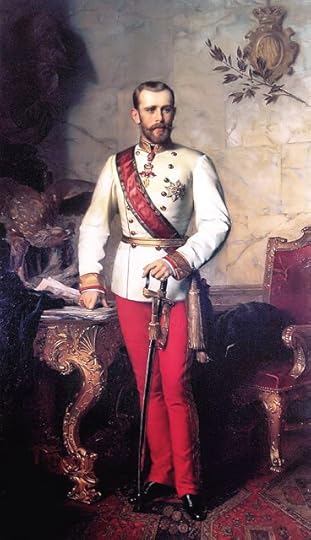
August 17, 2020
Emperor Karl and his father, Archduke Otto
On 17th August 1887, the future Emperor Karl of Austria was born. He was the son of Franz Ferdinand's brother, 'the gorgeous Archduke' Otto, whose beauty was unfortunately only skin deep. Otto was a complete cad, a drunkard and a womaniser who, with his companions, wrecked many cafes and bars in Vienna. On one occasion he took his drunken friends to his wife's bedroom at 3 o'clock in the morning so that they could have some fun 'with a nun.' Fortunately, one of his friends was sober enough to draw his sword to protect the poor woman until help arrived.
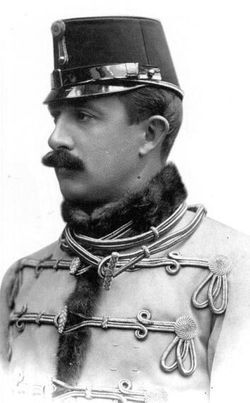
Archduke Otto
Otto's lifestyle soon caught up with him. He contracted syphilis, which not only left him in agony but also rotted his face. His nose was so eaten away that he had to wear a leather prosthesis and he died at the age of only forty-one. Karl, of course, was a very different character - devout and faithful to his wife.
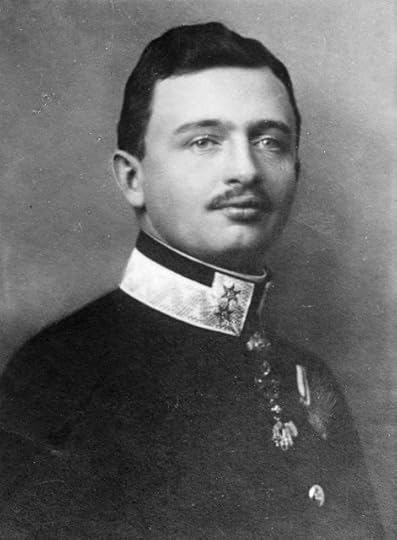
Emperor Karl
August 13, 2020
King George's Menagerie
King George IV, like many of his contemporaries, developed an interest in exotic animals and created a large menagerie at Windsor. From 'Queen Victoria's Creatures': "Generally, George preferred the company of the docile creatures and colourful birds that lived in his menagerie, one of which, a cockatoo, was tame enough to sit on his arm as he travelled through London. So proud was he of his growing collection of interesting beasts that he granted the public admission to his menagerie on condition that they made no drawings of the inhabitants and only visited on days when he was absent. On rare occasions he made an exception to this rule, as when a young lady arrived at the gates as he toured the gardens. On being denied entrance, she sent George a message, explaining that she had travelled some distance for the sole purpose of seeing the peacocks, and, once he had ascertained from the messenger that she was a woman of great beauty, he allowed her admission. When, however, soon afterwards, he caught sight of one of his former mistresses standing by the gate, he insisted that she be detained by the guards until he had departed."

August 6, 2020
The Battle of Worth
"Bismarck pointedly failed to acknowledge Fritz’ role in the victory, and looked ‘as sulky as a bear’ when the King warmly praised him; but, with two victories in four days, the morale of the Third Army soared, and ‘Our Fritz’ became the soldiers’ ‘idol.’" (From 'The Silent Emperor')
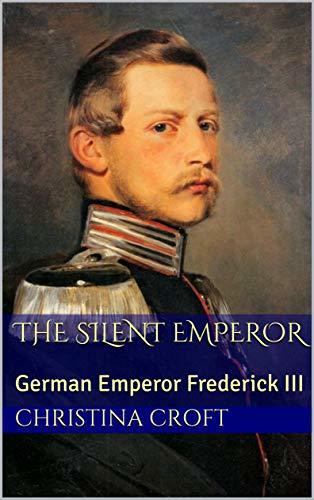 Add caption
Add captionJuly 28, 2020
The Outbreak of World War I
"The declaration of war, which was due to be sent on August 12th, was delivered by telegram to Belgrade at eleven o’clock in the morning of 28th July, and was so unexpected that the Serbs initially believed it to be a hoax. They were quickly disillusioned when the Austrians began firing shells across the Danube, prompting the anxious Serbs to blow up the main bridge across the river to prevent the invading army from reaching Belgrade.
On hearing that Austria had launched an attack, the Russian press roused the people to demand retribution for the ‘ignoble war’ against a ‘weaker and smaller’ country, and the Tsar ordered a partial mobilisation against Austria. In spite of their antipathy towards Austria-Hungary, the Russians were largely unmoved by the headlines that attempted to turn them against Germany, and, according to one witness, the people of St Petersburg generally believed that the Kaiser would eventually prove successful in his attempts to resolve the situation peacefully.
“Everyone firmly believed in Kaiser Wilhelm’s peaceful intentions, and the efficacy of his powerful mediation, and were convinced that he would intervene in the last moment. The Kaiser’s vaunted love of peace seemed a guarantee.”
Wilhelm, realising that the situation was rapidly escalating out of control, urgently telegraphed Nicholas, asking him to halt the mobilisation, and offering further mediation while promising to ‘induce Austria-Hungary to seek a frank and satisfactory understanding with Russia.’ True to his word, he repeatedly sent emissaries to Vienna, exhorting the Austrians to show restraint and to agree to some form of compromise but his suggestions were rejected as Franz Josef’s ministers and Chiefs of Staff insisted that there could be no compromise without a complete acceptance of their demands. Over the next forty-eight hours, telegrams flew back and forth between St Petersburg and Berlin as the Kaiser and the Tsar pleaded with each other to do everything possible to avoid war."
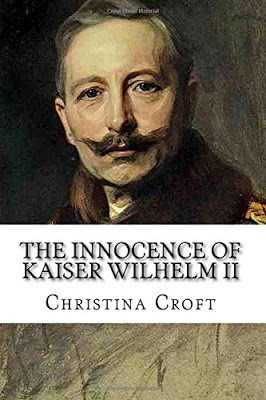 The Innocence of Kaiser Wilhelm II
The Innocence of Kaiser Wilhelm II
July 25, 2020
A Meeting of the Kaiser & the Tsar

July 22, 2020
King Cetshwayo
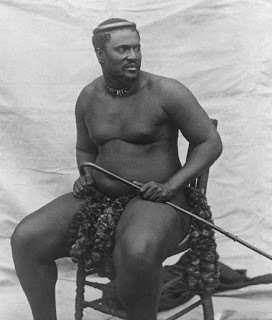
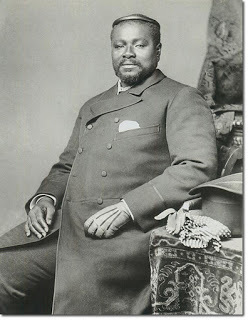
I greatly admire and simultaneously feel sorry for King Cetshwayo - the King of the Zulus, whose well-disciplined and courageous soldiers inflicted a shocking defeat on the British at the Battle of Isandlwana. They won the battle but lost the war, and the King - who, incidentally, personally ensured that the Prince Imperial's belongings were returned to ex-Empress Eugenie - went into exile in Britain. Happily, his graciousness and his story were taken up by a number of prominent people and the British public turned against the officials in S. Africa, who had brought about the war. Cetshwayo became very popular with the British people and he was eventually asked to resume his kingship in Zululand. Unfortunately, rival factions within his kingdom began a campaign against him and he died quite suddenly, ostensibly of a heart attack, but many people believe he was poisoned. I think he was a great king.
There is more about the Prince Imperial's story in my books: "Queen Victoria & the French Royal Families" and "Queen Victoria's Cousins":


July 21, 2020
Kaiser Wilhelm Honoured His Father
